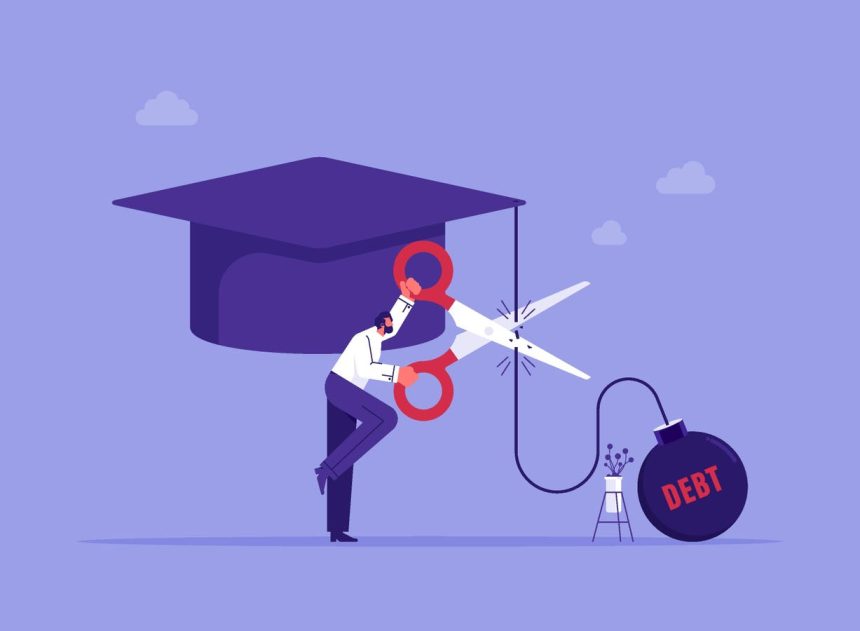There are many ways to save money on a college degree, although not all of them will work for every student. You can opt to attend community college, then transfer to a four-year university to finish up their program. You can live at home attending college and commute to class, or you can pursue a degree program that’s fully online. There are also students who get sufficient scholarships and grants to cover most of their college expenses.
But there’s another way to cut down on college costs while attending a single institution of higher education and graduating with a four-year college degree. I’m talking about pursuing higher education aggressively enough to earn a four-year degree with just three years of actual classroom learning (or even less than that).
I did this myself while earning my four-year degree in 3.5 years at UC San Diego, so I know it’s possible (I could have finished in 3, but I changed my major). Here’s an overview of what it takes to earn a bachelor’s degree in less than four years, plus some of the pros and cons to consider before you go this route.
Fast Track To A Bachelor’s Degree
Financial advisor Jay Zigmont of Childfree Wealth says the first thing to remember about bachelor’s degrees is the fact colleges and universities don’t actually specify how long it has to take. A bachelor’s degree is usually around 120 credits, not 4 years, he said.
“It is up to you how you get the 120 credits.”
Zigmont earned a bachelor’s degree on a much speedier timeline than even three years (9 months) by using a few different strategies to graduate faster. First, he started with around 30 college credits he received from studying to be a Paramedic and Firefighter. From there, he took CLEP and DANTES exams every week in order to “test out” of some of the courses he would otherwise have to take.
He also did 5-week intensive college courses while pursuing these exams through an online school called Charter Oak State College, which is licensed and accredited by the state of Connecticut and regionally accredited by the New England Commission of Higher Education.
“In the end, I had a bachelor’s degree from a state college, with a 4.0 GPA, in 9 months and it only cost me $9k,” says Zigmont. “Some may question the value of a degree you get in 9 months, but no one has ever asked me about that Gen Ed course I tested out of.”
Zigmont then went on to earn a master’s degree and a Ph.D. from the University of Connecticut.
While Zigmont charted his own unique path to a bachelor’s degree and his advanced degrees, there are other strategies individuals can use to earn a four-year degree on a shorter timeline. For example, Jefferson Pestronk of Modern States Education Alliance points out that high school students can earn college credit by taking AP courses, or by participating in dual enrollment courses.
This was my path: leveraging a large amount of AP credits during my high school experience to have sophomore standing by the time I enrolled in college.
Many high schools offer these programs to eligible students, but not all of them do. This means you may have to do some digging and research to find out whether your high school offers college credit courses, and if so, which ones.
Pestronk also recommends the strategy Zigmont used to earn a college degree faster — by taking College Level Examination Program (CLEP) courses. He points out that nearly 3,000 colleges and universities confer college credit to students who earn a passing score on available exams.
“Passing a CLEP exam generally translates to 3 to 4 college credit hours, saving learners an estimated $2,000 and many hours per exam passed,” says Pestronk. “CLEP exams are basically AP exams, but without the associated courses.”
It’s also worth noting that Modern States builds the associated courses that make it possible for students to take advantage of CLEP exams. Not only that, but the platform provides learners who complete courses with vouchers to take CLEP exams at no cost. They even reimburse learners for test center fees they might incur.
“For each exam, it is a direct out of pocket savings of $125 and can lead to tens of thousands of dollars of savings on college costs,” he says.
Dr. Michael Horowitz, who is founder and President of The Community Solution Education System, also points out that some colleges have programs that let students pursue multiple degrees at once. One example he points to is the B.A. Psychology program from The Chicago School, which lets students enroll in master’s level courses while completing their bachelor’s degree.
Pros And Cons Of Accelerated Learning
When it comes to the upsides of fast-tracked learning, Horowitz points to some of the most obvious benefits of pursuing two degrees at once or finishing a specific degree program on a faster than normal timeline. Shortening the time to a degree saves students money first and foremost. Of course, it also helps individuals move their way through school and out into the workforce on a faster timeline.
“We’re sending them into the workforce or to graduate or professional programs faster, which benefits the student financially and addresses shortages in fields experiencing staffing challenges like health care and education,” he says.
Financial advisor Michael Hills of Apex Wealth also says that earning a degree faster can cut down on various costs outside of tuition, including materials, books and other related expenses like on-campus housing. Beyond the potential for lower college costs, Hills also points out that students who wind up borrowing less for school will pay less in interest over the time it takes them to repay their loans.
But, there are some downsides to pursuing a degree on an advanced timeline, too. Chris Morett, PhD, MPP of Co|Here says that students will need to consider how much they need to borrow to take on a heavier course load than normal, and whether that will cause them to go over the federal financial aid limits for the year. If so, that could lead to more out-of-pocket costs or a more complex effort to come up with alternative funding for college.
Also, some majors are very intense or they have a series of courses you need to take in a certain order, he said, adding that trying to do it faster might make it harder or impossible on those fronts.
“Also, what are course offerings like in the summer and winter?” he asks. “If they are materially different, then that’s a consideration.”
Hills agrees that, despite the benefits involved, attempting to graduate at an accelerated pace can be intense and lead to higher amounts of stress and greater risk of burnout. Students who are learning intensely to graduate faster may also find they’re limited in the amount of time they’re able to devote to other things such as relationships with peers, extracurricular activities, and exploring other subjects.
Of course, those are only temporary problems that could be resolved once a student graduates and is able to move on with their lives. In other words, the sacrifice may be worth it for some students in the long run.
Read the full article here
















